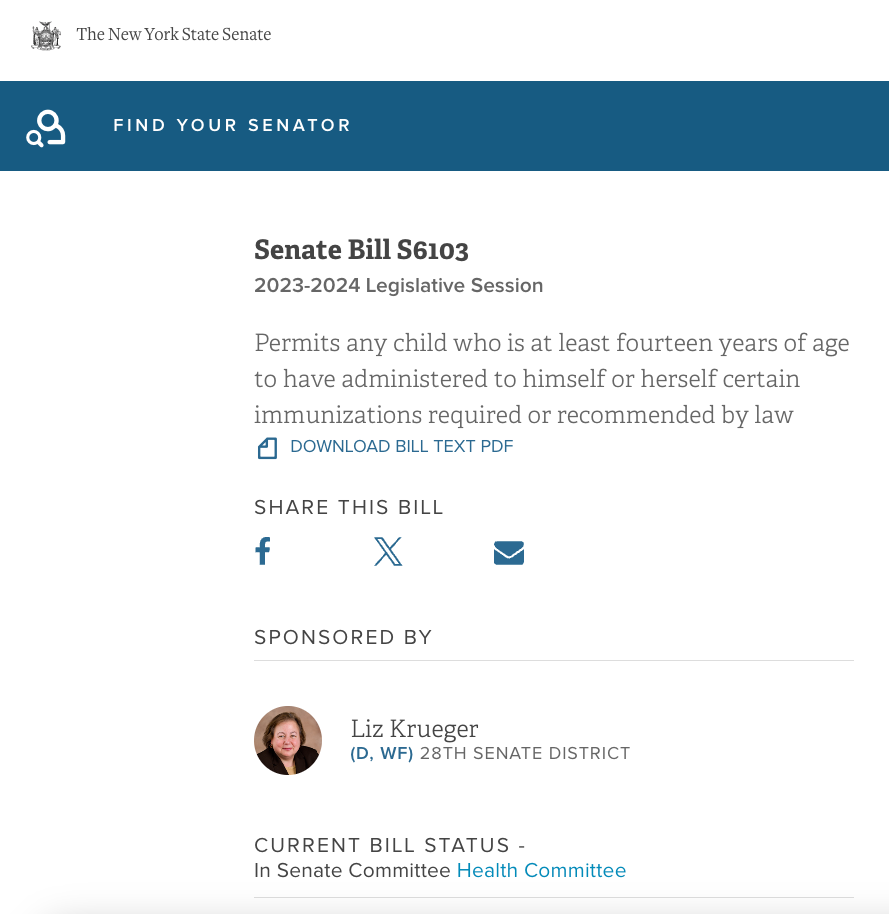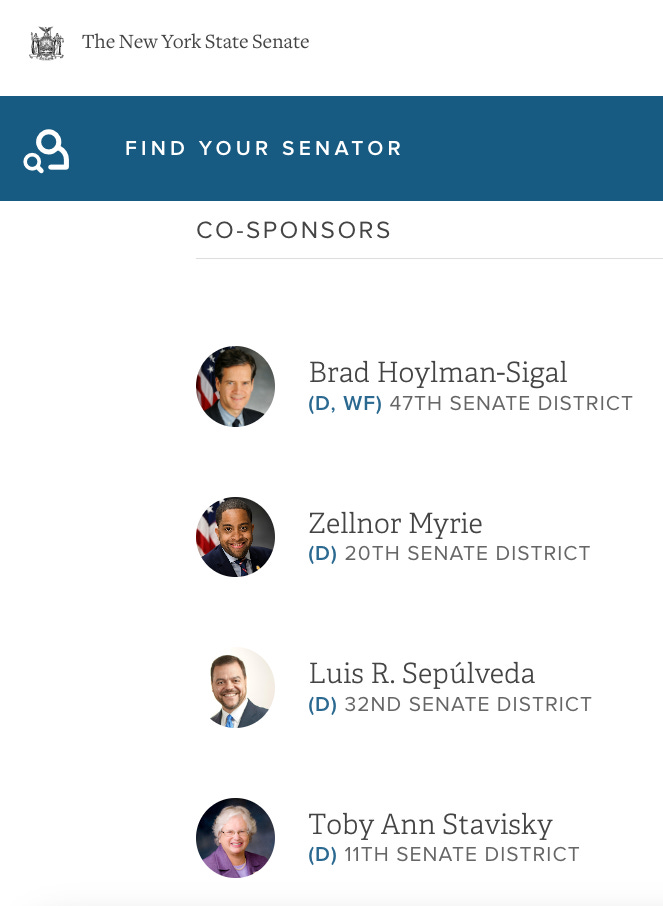Minors Can Get Vaccinated Without Parental Consent If This New York Bill Passes: S6103
"Permits any child who is at least fourteen years of age to have administered to himself or herself, regardless of parental consent, certain immunizations required or recommended by law."
In a significant move against parental rights, New York Senate Democrats have introduced Senate Bill S6103, which aims to allow minors aged fourteen and above to consent to certain vaccinations without parental consent.
Follow Jon Fleetwood on Instagram @realjonfleetwood / Twitter @JonMFleetwood
The bill, currently in the Senate Committee Health Committee, was introduced by Senators Krueger, Hoylman-Sigal, Myrie, Sepulveda, and Stavisky.


The legislation, titled “Administering a vaccine to a minor; consent,” proposes an amendment to the public health law by adding a new section, 2167-a.
According to the text of the bill, “A health care practitioner may administer a vaccine to a minor who is at least fourteen years of age if the minor has the capacity to consent and provides informed consent to the administering of the vaccine.”
This new legislation emphasizes the importance of informed consent, stating, “Prior to administering any vaccine under this section, the health care practitioner shall consult with and counsel the minor to ensure that the minor fully understands and appreciates the nature and consequences of receiving the vaccine, has the capacity to consent and is providing informed consent.”
Key definitions within the bill include clarifications on terms such as “health care practitioner,” “vaccine,” and “capacity to consent.”
“Health care practitioner” is defined as “a health care practitioner licensed, certified, or otherwise authorized to practice under title eight of the education law, acting within the practitioner's lawful scope of practice.”
Meanwhile, “vaccine” is described as “a biological product intended to confer immunization to an infection or disease which meets the standards approved by the United States public health service.”
One of the most significant aspects of the bill is its emphasis on the minor’s capacity to consent.
The legislation defines “capacity to consent” as “an individual’s ability, determined without regard to the individual’s age, to understand and appreciate the nature and consequences of the proposed vaccination, and to make an informed decision concerning the administration of the vaccine.”
Concerns are raised about minors making such significant health decisions without parental involvement.
You can read the full bill below:
Follow Jon Fleetwood on Instagram @realjonfleetwood / Twitter @JonMFleetwood


